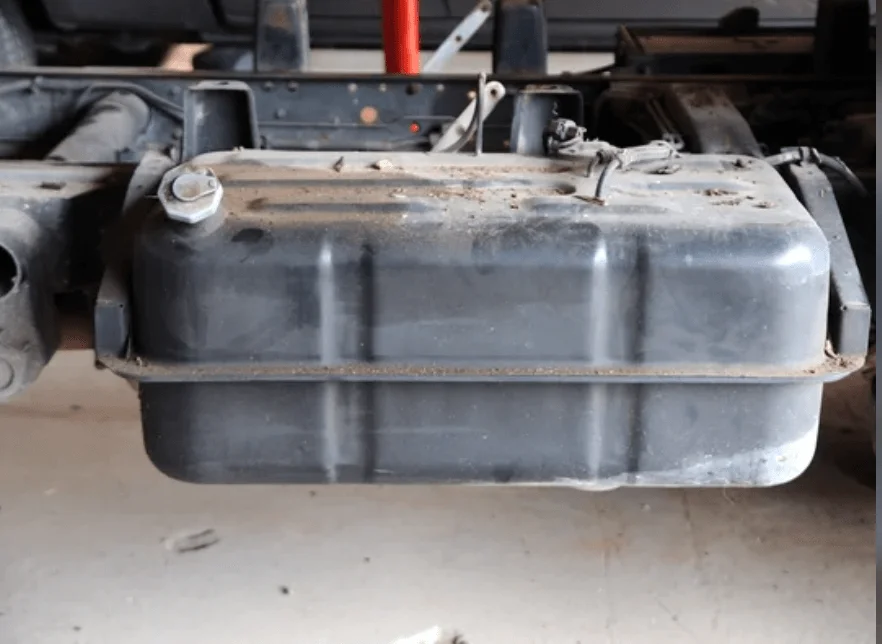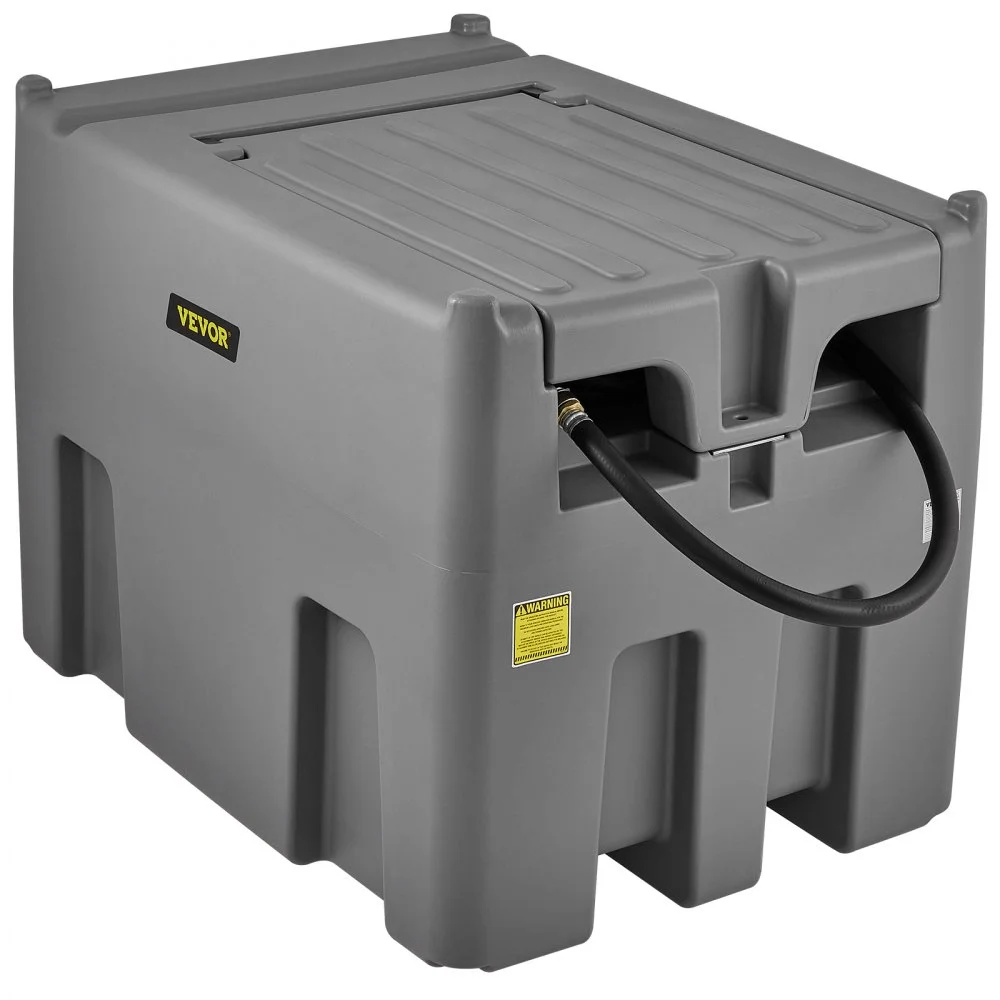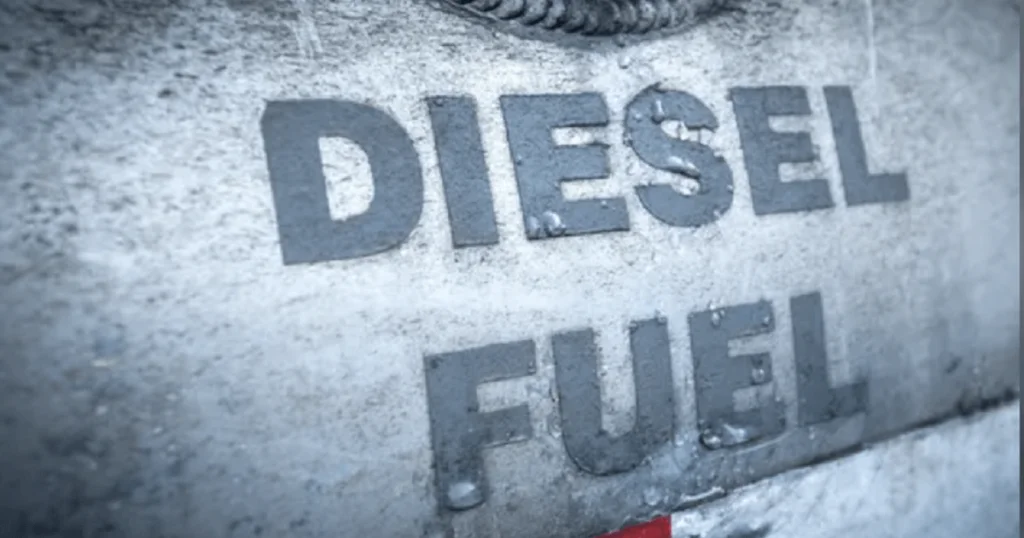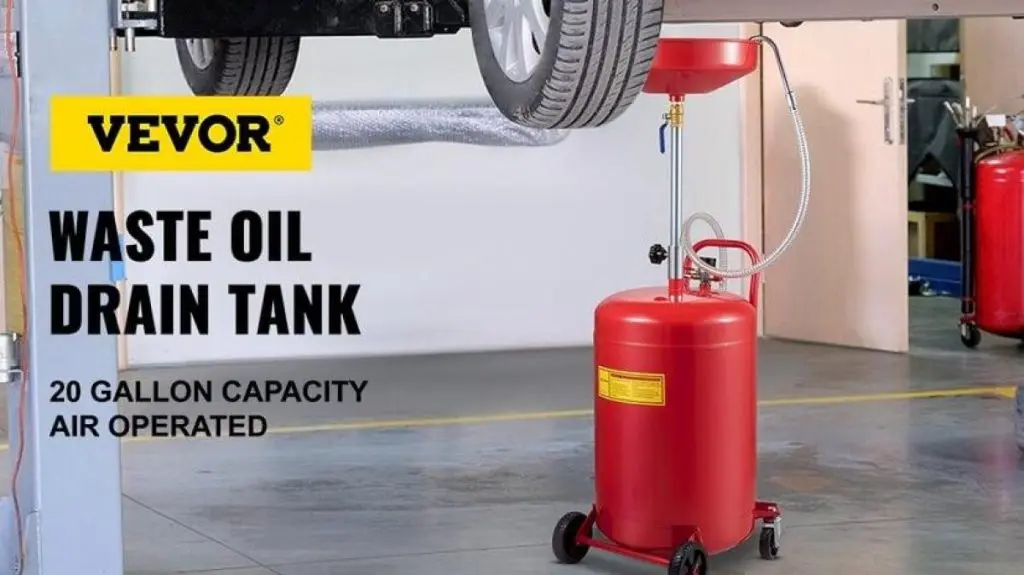Diesel fuel is one of the most important resources known to mankind. It is often used as a source of energy in several industries, from transportation to backup generators. However, like other resources, you must store it properly or you would be putting it at risk of degradation.
Do you have some extra diesel fuel and are thinking; what is the shelf life of diesel fuel? Or perhaps you’re thinking of buying some diesel fuel and stocking up in case of emergencies, but are not sure how long it will be viable for.
If you’re wondering; how long can diesel fuel be stored? you’ve come to the right place.
Diesel fuel can typically last for a duration of 6 to 12 months if stored under optimal conditions. You must keep it free from contaminants, extremely high temperatures, humid conditions, and other factors that can promote microbial growth.
If you’re looking to store your fuel for as long as possible, you must invest in good quality diesel fuel storage tanks like the VEVOR portable diesel tank. With the high-quality VEVOR Portable Diesel Tank, you can keep your diesel fuel clean and pure. This is because it is made of high quality polyethylene material designed to protect your fuel from contaminants, making it last for longer periods
Are you looking for more tips on how to extend the shelf life of your diesel fuel? Read on.
In this article, we’ll answer the question; how long does diesel last in storage. We’ll also discuss how fuel deteriorates over time, how to recognize bad fuel, and practical tips for long-term diesel storage.
Let’s begin!
Table of contents
Understanding Diesel Fuel Deterioration

Before you can fully understand the answer to; what is the shelf life of diesel fuel? You must understand fuel deterioration. When diesel fuel deteriorates, it goes through physical and chemical changes. Physically, it loses its natural amber-green color and takes on a much darker color that resembles tar.
Additionally, you may notice some sediments floating around in the fuel. This is because as fuel deteriorates, the heavier components can no longer be dissolved.
Over time, long-term diesel fuel storage can lead to increased oxidative instability. This can lead to chemical changes such as high viscosity, high acid number, and the formation of sediments, gums, and other fuel degradation products.
Sometimes, diesel fuel can deteriorate faster over time, depending on factors like oxidation, microbial growth, water contamination, etc. Let’s discuss some of these factors below.
Factors that Affect Fuel Longevity
- Oxidation: Oxidation is a chemical reaction that occurs when fuel is exposed to air. The oxygen in the air reacts to hydrocarbons in the diesel fuel, leading to the formation of peroxides. These peroxides react to other hydrocarbons present in the fuel, leading to high acid values and the formation of gum, sludge, and sediment.
- Microbial Growth: Sometimes, fuel deterioration occurs as a result of exposure to microbes, leading to microbial growth. When this happens, bacteria, fungi, and algae can start to grow in your diesel fuel, leading to the accumulation of sludge and slime, which affects its quality.
- Water Contamination: When you expose diesel fuel to water, it can lead to a hydrolysis reaction. This means that water droplets can break down diesel fuel components and make them more susceptible to microbial growth.
- Temperature: Diesel fuel cannot stay viable for long when stored under high temperatures. Ideally, you should store your diesel fuel in a VEVOR Portable Diesel Tank which helps to keep it at a temperature of at most 70 degrees Fahrenheit. Any higher and the fuel will become unstable and begin to deteriorate.
- Humidity: Humid conditions also play a huge role in shortening the lifespan of diesel fuel. High humidity can cause the water from your storage tank to condense, leading to corrosion, which alters the stability of the diesel fuel. Humidity also promotes the growth of microbes.
- Quality of Fuel: Sometimes, you can unknowingly buy diesel fuel that is already in bad condition even before you begin storage. This could be caused by quality control issues from the refinery, storage, or during the transportation process.
Optimal Storage Conditions for Diesel
Now that you understand the different factors that affect diesel fuel longevity let’s go into more detail on how you can create an optimal storage environment to preserve diesel for longer periods.
Temperature
As mentioned earlier, storing your diesel under high temperatures will accelerate oxidation and other chemical reactions that will ultimately hasten the process of deterioration.
The ideal temperature for diesel fuel storage should be around 70 degrees. Some sources state the ideal conditions to be between 32 and 95 degrees Fahrenheit. Any lower and the fuel is at a higher risk of degradation.
Therefore, do not leave your fuel storage tank under direct sunlight. Instead, store it under a covered area that is sheltered from harsh weather conditions. You can also consider using underground storage to keep the temperature as stable as possible.
Type of Storage Tank
Understanding how long diesel fuel can be stored also requires a good knowledge of different storage tanks. The type of fuel storage tank you use also determines how long the diesel fuel will remain viable. The tank you use should be made of durable materials like steel, aluminum, or polyethylene, as these are suitable for withstanding harsh weather conditions and elongating the shelf life of your fuel.
The VEVOR Portable Diesel Tank, a high quality storage tank made of durable polyethylene material. It also has an integrated forklift pocket design that makes it easy to transport from one location to another, so if the temperature gets too high, you can easily shift the storage tank to a more stable environment. Here’s an illustration of what it looks like.

Location
Even when you use high quality storage tanks, you must also be careful of the location you put the tank in. If you’re keeping your storage tank above ground, ensure you keep it properly sheltered to prevent rainfall from contaminating the content of the tank.
Do not let water pool up at the top or sides of the tank. Ensure there’s a good drainage system in the surrounding areas so as to prevent any pools of water from gathering. Doing so will prevent water buildup, reduce the level of humidity in the tank, and prevent contamination.
Finally, this goes without saying. Ensure you keep your tank far away from any sources of ignition. Diesel fuel is highly flammable and can easily lead to destruction of property if not stored properly.
The Role of Additives in Diesel Storage
Additives are chemical compounds you can add to diesel fuel in order to enhance its properties, prevent degradation, and mitigate issues associated with improper storage.
Additives could be stabilizers or biocides. Stabilizers are antioxidants or metal deactivators that increase the shelf life of fuel by preventing oxidation. On the other hand, biocides control microbial contamination by inhibiting the growth of bacteria, fungi, and algae.
Some examples of additives include Biobor JF and Howes Diesel Conditioner. Let’s discuss how these additives can help to elongate the shelf life of your diesel fuel.
- Enhances Fuel Efficiency: Additives improve the overall fuel efficiency by enhancing combustion and reducing fuel consumption.
- Reduces Engine Wear: Additives help to reduce engine wear by forming a protective barrier between engine components. It reduces the level of friction and wear on engine parts and helps the components run more smoothly and efficiently.
- Elongates Diesel Shelf Life: Additives also stabilize diesel fuel and inhibit the formation of harmful substances. This elongates the shelf life of diesel fuel compounds, making them last longer.
- Prevents Gelling: Diesel fuel contains paraffin wax. This component can cause gelling, which is when the fuel develops a solid-like nature when the temperature gets too low, leading to clogged filtration systems. However, additives lower the cold filter plugging point (CFPP) and prevent gelling and clogging up of your filtration system.
Recognizing Bad Diesel Fuel: Signs & Symptoms
How long does diesel stay good? And how can you tell when your diesel fuel is already bad? Here are some signs and symptoms to look out for.
- Cloudy Appearance: One of the quickest ways to check if your diesel fuel has been contaminated is by taking note of its appearance. If it looks hazy, cloudy, or has a darker color than usual, it has probably been contaminated by water or dirt. You may also notice particles floating around on the surface,
- Foul Smell: When diesel fuel has been contaminated by microbial growth, it begins to emit a foul smell that can sometimes resemble the smell of rotten eggs. If a quick sniff test reveals that the fuel smells pungent, it has been contaminated by bacteria or fungi.
- Decreased Engine Performance: If your engine isn’t working as well as it should, it could be that the diesel fuel you’re using is not combusting as it should because it has gone bad. For example, if your car engine starts vibrating or stuttering more noticeably or your vehicle takes up more fuel than usual, it could be a sign of bad fuel.
- Fuel Tank Corrosion: Another great way to tell if your diesel fuel is bad is by checking for corrosion in your fuel tank. As mentioned earlier, contaminated fuel has a high acid number and contains peroxide components, which can lead to corrosion.
Practical Tips for Long-Term Diesel Storage
There are several important factors to keep in mind when storing diesel long-term. Keeping it for less than 12 months will require less complex storage requirements because diesel fuel typically has an average shelf life of 12 months.
However, if you plan to store your fuel for longer than 12 months, you must invest in more thorough storage requirements. This is because the longer the fuel stays, the more likely it is to deteriorate. Let’s discuss storage under these two scenarios.
Storing Diesel Fuel for Less Than 12 Months
Here are some essential tips for storing diesel fuel for short periods of time.
- Before filling the tank, wash it thoroughly and rinse it with clean water and detergent to remove any contaminants.
- Choose a suitable storage tank that can easily withstand harsh weather conditions and can be transferred from one location to another while maintaining the quality of the diesel fuel. The VEVOR portable Diesel Tank is a highly recommended product for this purpose because it is durable enough for easy transportation and is built with a transfer pump for easy refilling while keeping your fuel free from contamination.

- Store at an ambient temperature of more than 30 degrees Fahrenheit. If you keep the temperature too low, your fuel may begin to gel. Keep the tank away from direct sunlight, rainfall, and sources of ignition.
- Use fuel stabilizers and biocides to discourage the growth of bacteria, algae, fungi, and other microbial contaminants.
Storing Diesel Fuel for More Than 12 Months
- Store at an ambient temperature of about 68 degrees Fahrenheit.
- Use fuel additives to prevent gelling and to increase the shelf life of your diesel fuel.
- Regularly test the quality of the fuel to ensure it is still in good condition.
- Keep the fuel tank air-tight and as full as possible. Any air pockets left in the tank will make the fuel more susceptible to oxidation.
- Consider underground storage facilities. You can keep your storage tank at least 10% below ground level in order to maintain a more stable environment that will help to stabilize the components of the fuel.
- Implement a fuel rotation and filtration system (First-in, first-out) to ensure that the older diesel fuel is used before newer batches.
- Regularly filter out old diesel to remove sludge, sediments, and other impurities. Additionally, use storage tanks with inbuilt filtration systems to help filter fuel in storage. We recommend the VEVOR Portable Diesel Tank, which is equipped with net filters and advanced filters that help to filter out large particles, colloids, metals, and other forms of impurities even while your diesel fuel is in storage.

Regular Maintenance & Monitoring
The best way to ensure your diesel fuel does not go bad is by carrying out regular maintenance and monitoring, especially if you plan to store it for 12 months or more. Let’s discuss some effective tools and techniques you can use to test the quality of your diesel fuel.
- Ash Content Test: Burn a small sample of your diesel fuel and gather the ash content that remains as residue. The smaller the ash content or carbon residue is, the higher the quality of the fuel.
- Contamination Test: A good way to check for diesel fuel contamination is by using hydrometers and dipsticks to check for physical discoloration, particles, or water content.
- Corrosion Test: You can also gauge the quality of your diesel fuel by checking for corrosion. To do this, place a copper strip in a fuel sample and leave it to sit at a temperature of 122 degrees Fahrenheit. After three hours, measure the level of corrosion. If the metal is severely corroded, it can imply that the fuel has gone bad.
- Color Test: This involves analyzing a fuel sample using a standardized light source. After you compare the color of the fuel sample to colored discs, you can be able to tell which sample has a darker color, which indicates that it is of low quality.
Conclusion
If you want to know how long diesel fuel can be stored or are looking for ways to make your diesel fuel last longer, this guide will be more than helpful. In this article, we discussed factors that affect fuel longevity, including oxidation, microbial growth temperature, water contamination, humidity, etc.
If you want to make your diesel fuel last longer in storage, ensure you keep the temperature between 32 and 95 degrees Fahrenheit. Too cold and the fuel may start gelling, too hot and it will deteriorate faster than usual.
Finally, remember that the type of storage tank you use plays a huge role in how long your diesel fuel lasts. Use a tank made from durable polyethylene material, as it is strong enough to resist harsh weather while keeping the fuel free from contamination.
Luckily for you, the VEVOR Portable Diesel Tank provides all the features listed above. It is equipped with a transfer pump of 12V DC, an output power of 140W, and high-quality material that resists UV radiation.
Try the VEVOR Portable Diesel Tank for all your diesel fuel storage needs today.





